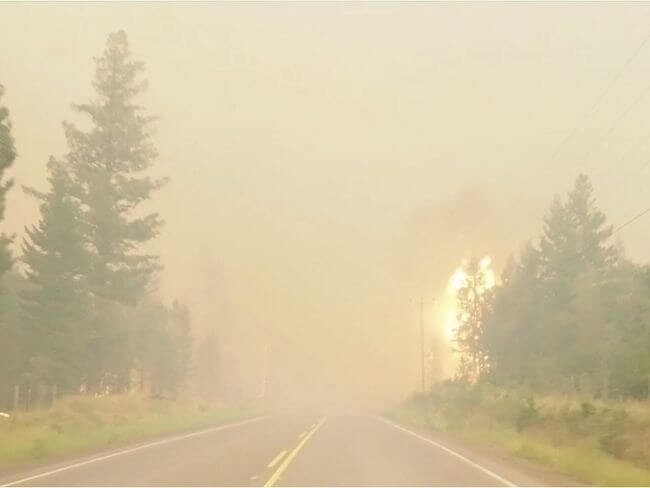theQuestion: Are the B.C. wildfires getting worse from climate change?*
Only those blinded by the climate change dogma could corrupt something so understandable as a forest fire. Devastating as they are, especially when flames overrun populated areas, wildfires are intrinsic to nature and essential to a vibrant forest.
I am no stranger to forest fires. Growing up in the Okanagan Valley meant enduring the annual August ritual of waking to a sun lost behind a haze of smoke. The air was acrid and the mood foreboding — a primal reaction to fire when out of man’s control.
Control is the operative word — man has none. In 1994, while working as a news cameraman I learned this lesson first hand. For two weeks straight, I hiked into the heart of the Garnett Forest Fire in Penticton. Never had I been so close to experiencing the mortal danger faced by B.C. forest firefighters each and every day.
Hearing the crack-crack and roar of a pine tree as it candles into flame just 20 feet away is terrifying —everybody runs. I recall the last member of the fire crew grabbing me by the collar pulling me out as I finished taping the last of my shots.
Any forest firefighter I have ever interviewed would say the real objective is not to control a fire but to contain it, by depriving it of the fuel it feeds on.
Garth points to the 2016 Fort McMurray fire as an example of a new phenomenon called a “megafire” which is said to be a consequence of climate change. Megafires are said to grow bigger, faster and they are more frequent. Yet, never in all my years of covering forest fires did I hear of a speed rating system. If the winds are fast and fuel is aplenty then the fire grows quickly. Simple physics.
The one fact most people seem to agree on is that forest management policy over the past 100 years, which mandated the suppression of all forest fires, has contributed significantly to the buildup of excess fuel loads — exacerbating the wildfire risk. The policy was a failure.
Now the same forest management bureaucrats are aligning themselves with climate change alarmists. To what end?
Are we really to believe that fixing building codes, funding climate adaptation and leaping into a post-carbon economy is going to somehow prevent forest fires in B.C.? It’s laughable.
The very idea man can achieve control of the uncontrollable is where the hubris of manmade climate change reveals itself.

